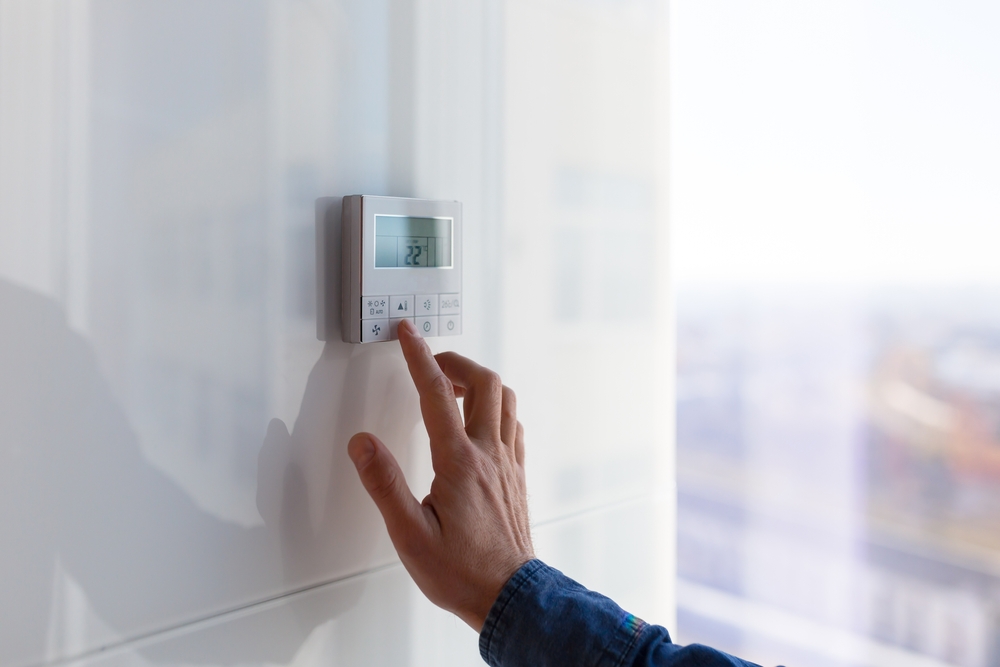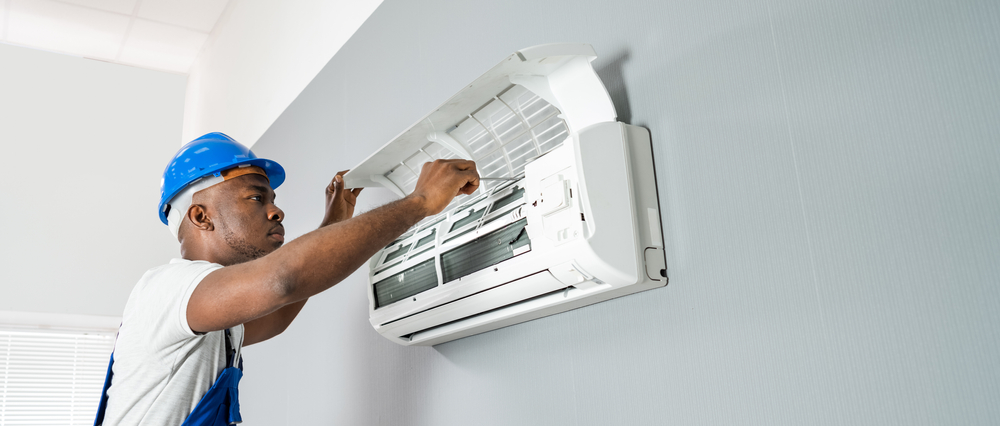Appliance and HVAC technology have advanced significantly in the last few years, from energy-efficient heat pump systems to more powerful and environmentally friendly kitchen appliances. Despite the availability of high-tech systems, a Consumer Reports survey found that 21% of Americans would not consider buying the latest technology, like a heat pump system, due to the perception that they are too expensive.
To combat this belief and help all Americans afford these systems, the government has introduced a series of tax credits, some retroactive to 2017 and some starting in 2023, to help families install the latest energy-efficient HVAC systems in their homes. Learn about tax credits for HVAC system upgrades and how taking advantage of them can help you get an energy-efficient system for your home.
Table of Contents
What Is the HVAC Tax Credit System?
Introduced in 2005, the Nonbusiness Energy Property Tax Credit is an income-tax-based incentive encouraging homeowners to upgrade their HVAC and water heating systems.
This credit offsets any upgrade costs up to $500. In some cases, you can earn up to $2,000 through a non-refundable tax deduction. This money is not an instant rebate; instead, you will receive the money in the form of a reduction in your annual tax bill.
Previously, energy-related tax credits were only afforded to corporations and businesses. However, the 2005 government-sponsored tax credit plan was passed to minimize the financial burden of purchasing modern, environmentally friendly appliances on homeowners.
It is part of a nationwide plan to conserve energy more efficiently and to help bring properties up-to-date with newer devices for better energy management.
How Much Money Can I Save?
How much money you save will differ depending on what HVAC system you installed and when you installed it. Currently, there are two different tax cut systems that you could apply for.
If you installed your system between 2017 and the end of 2022, you are eligible for a 10% tax credit on your upfront costs of up to $500 or may be eligible for a specific tax credit on certain appliances.
Starting in 2023, the amounts will increase. The percentage will remain the same, but the maximum value of $500 will increase to $1,200, and certain systems like heat pumps and 3-zone mini splits will be eligible for up to $2,000 in tax savings.

HVAC controllers
What Types of Systems Are Eligible for Tax Credits?
The tax credit system can seem complicated, particularly as there are two systems currently on the books. Depending on what you buy, you could save a lot more money.
The government breaks down the tax credits by what part of your home’s HVAC system you decided to upgrade, and it has specific requirements for each component. Ensure you follow the government’s rules, as failing to do so will make you ineligible for these cost-saving measures.
Heat Pumps
Heat pump systems like the MRCOOL DIY mini split offer some of the best tax credits. If you purchased your system between 2017 and the end of 2022, you are eligible for a $300 tax credit, and systems purchased in 2023 will qualify for a tax credit for 30% of the upfront costs up to $2,000.
The systems must meet strict energy efficiency requirements, including a Heating Seasonal Performance Factor of 8.5, an Energy Efficiency Ratio of 12.5, and a Seasonal Energy Efficiency Ratio of 15.
Advanced Main Air Circulating Fan
If you purchased an advanced main air circulating fan between 2017 through the end of 2023, you are eligible for a $50 tax credit, provided the fan uses less than 2% of the HVAC system’s total energy consumption.
Water Heaters
The government offers a $300 tax rebate for gas, oil, electric and propane water heaters, provided that they meet a Uniform Energy Factor of .82 or are 90% thermally efficient in the case of gas, oil and propane heaters or have a Uniform Energy Factor of 2.2 for electric heaters.
Furnaces
Furnaces of all types are eligible for a $150 tax credit for systems installed from 2017 through 2023. If you live in EPA regions 4 and 6, your system must have an Annual Fuel Utilization Efficiency of 95.
Central AC Units
All central AC units that qualify for the EPA’s Energy Star Most Efficient label are eligible for a $300 tax credit through the end of 2032. To qualify, the IRS requires that you provide a Manufacturer Certification Statement along with your claim to ensure that your central AC system is efficient enough to qualify for the tax credit.
Who Is Eligible for Tax Credits?
These tax credits are available to homeowners who have upgraded their primary residential HVAC system. They are unavailable to renters or leasers and cannot be used for vacation homes or secondary residences. These credits are also only available as one-time rebates.
You can only claim the credit once for systems installed between 2005 and the end of 2022; however, the system will restart in 2023, so if you have already claimed this credit before, you will be able to do so again for a system installed after the new year.
How to Claim a Tax Credit
Claiming these tax credits is relatively easy. All you need to do is fill out the IRS Form 5695 and submit it with your usual tax return.
The form breaks down all the potential HVAC upgrades for which you can claim a tax credit and allows you to fill in how much of a credit you are due. Remember to follow the specific instructions for each type of appliance, and be sure not to write an amount above the caps if you are eligible for a percentage-based credit.
Save Money with an Energy-Efficient HVAC System
An energy-efficient HVAC system can save you money on your taxes and on your monthly energy bills. By exploring all possible tax incentives for upgrading the HVAC system in your home, you can take advantage of government programs designed to help taxpayers afford high-quality, environmentally conscious appliances.






